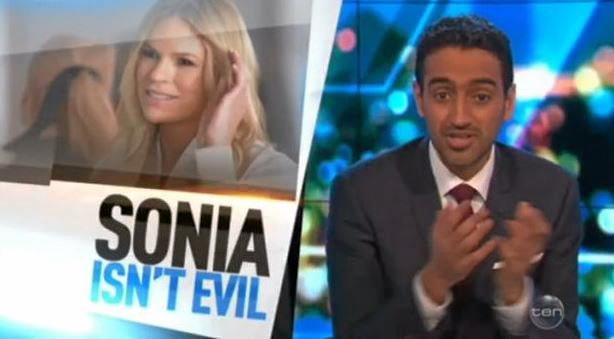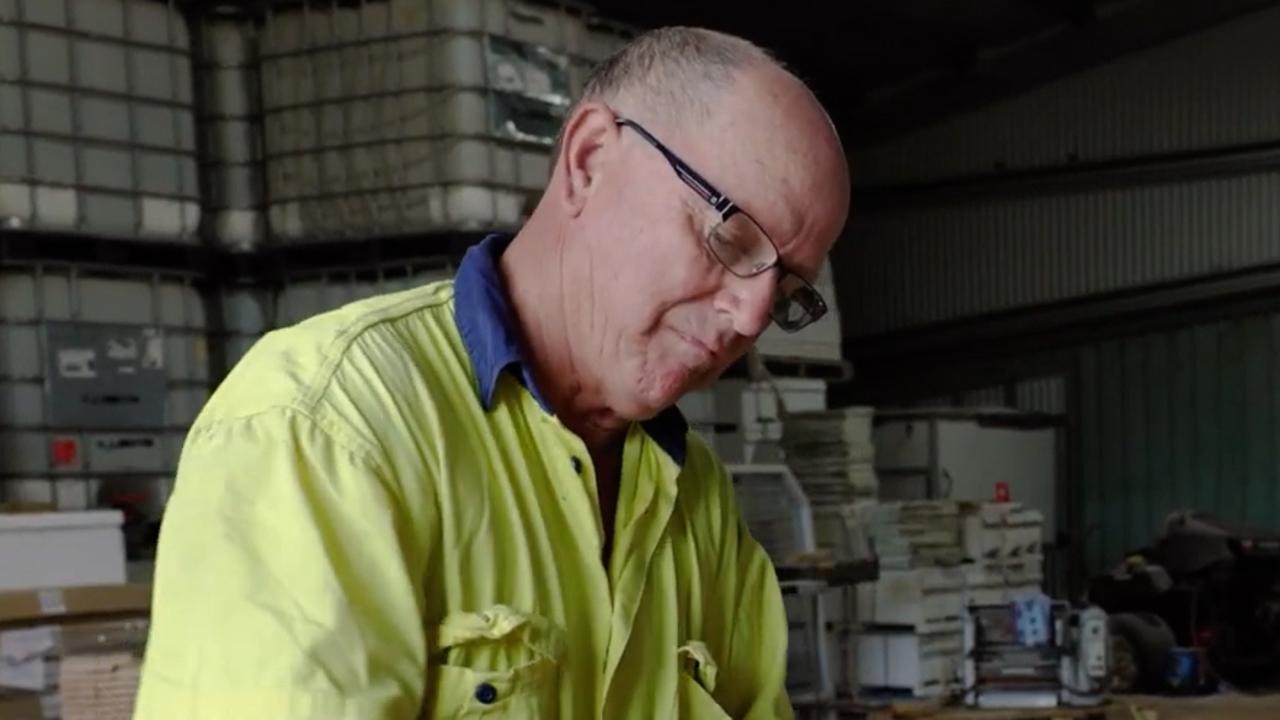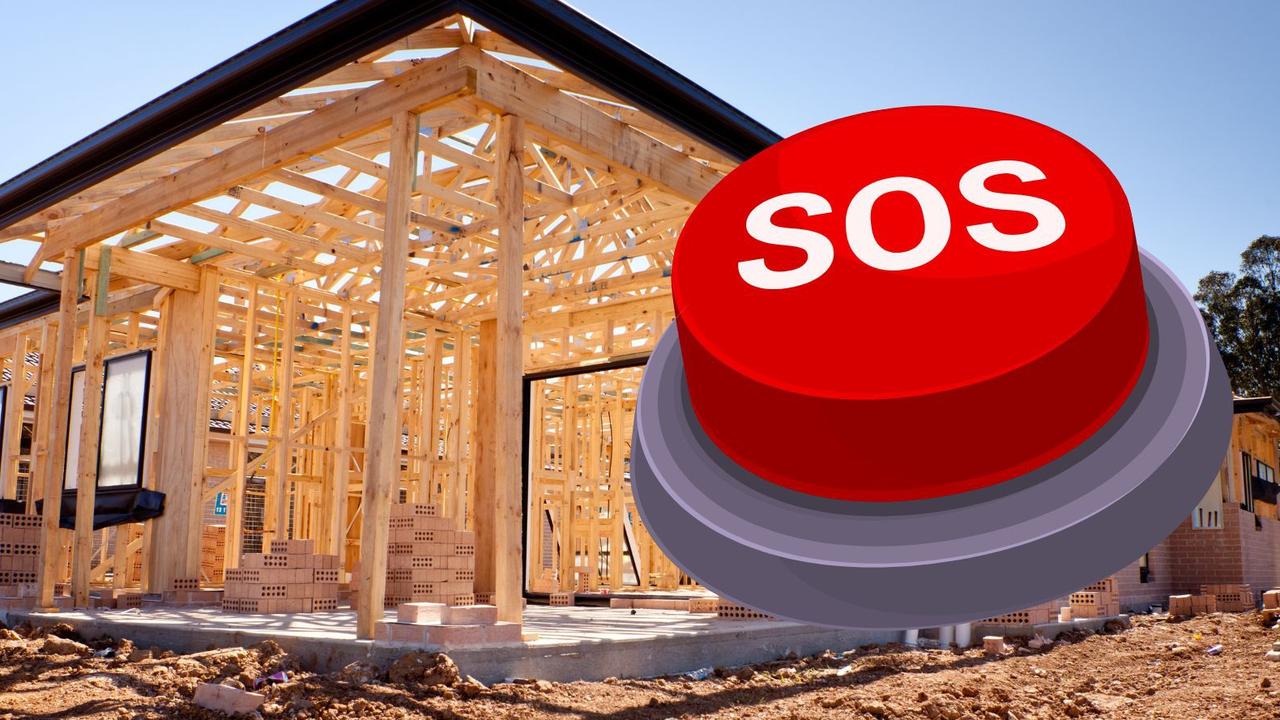OPINION: Waleed Aly’s comments missed the mark
I CAN'T believe anyone would ask nice people to forgive racist attitudes, rather than asking those in the wrong to start being nice people.

Ballina
Don't miss out on the headlines from Ballina. Followed categories will be added to My News.
DID you watch Waleed Aly's speech on The Project on Tuesday night?
I didn't, but within an hour it had consumed my Facebook feed.
As is now standard for Waleed's speeches, this latest in his series of earnest, impassioned videos was near-universally praised and shared.
I like Waleed Aly. As he told us himself when he accepted his Gold Logie earlier this year, we don't see many people like him on Australian television. He's an articulate, passionate, optimistic journalist who also happens to be a Muslim.
I like him for the opinions he puts forward as The Project co-host, and I like him because, merely by being visible night after night, he reminds the audience - who may not have otherwise given it conscious consideration - that Muslims are overwhelmingly reasonable, decent people.
I was in awe of his "ISIS is weak" speech following last year's Paris terrorist attacks, and I admire his rare ability to construct an argument, layer upon layer, encouraging viewers with even minimal knowledge on a particular topic to engage, consider and discuss.
That said, in my opinion, last night's speech, entitled #SendForgivenessViral, was misguided and unfair.
The speech was in response to two big, and related, news items this week: Pauline Hanson's appearance on Q and A on Monday night and TV host Sonia Kruger's statement that same morning supporting closing our borders to Muslim migrants.
#sendforgivenessviral a feel-good faux 'solution' to bigotry that does nothing to challenge structural oppression
— lana del neigh (@LanaDelNeigh_) July 19, 2016
Both of these events incited immediate, and largely negative, feedback. Pauline Hanson was reviled and mocked on Facebook and Twitter while police had to monitor protests outside the ABC building during her appearance, and Sonia Kruger has apparently been relentlessly abused online all week.
No online abuse should be tolerated, especially when some of the criticism of Sonia - typical of the abuse directed towards many women who dare to voice an opinion - was vile and misogynistic.
Waleed Aly: telling legitimately wronged victims how to act faced with a situation they didn't cause #sendforgivenessviral
— Sophie Meixner (@sophiemeixner) July 19, 2016
Waleed was responding to these reports of abuse and anger with a single appeal: instead of getting outraged when someone makes unpopular comments, how about we forgive them?
It sounds good, doesn't it? Like the image of a flower being placed in the barrel of the gun, why don't we respond to the kind of xenophobic sentiments espoused by Hanson and Kruger by simply forgiving them? Muslim people, and others in our community offended and insulted by their comments, should simply take the high road and respond to their uninformed hatred with love and grace.
Once you start unpacking his speech, though, I believe there are serious problems with this idea.
I get why Waleed wants to #sendforgivenessviral. It's a nice idea. Imagine if that was honestly all it took to stop racism.
— Jenny Noyes (@jennynoise) July 19, 2016
The first is, not all the feedback Kruger and Hanson received online was abusive. Much of it was well-meaning people expressing their justifiable anger in the face of these malicious comments, clearly designed to further single out Muslims in society.
By advocating for a moratorium on Muslim migration, the speaker is implying that with the various terrorism events our world has recently experienced, a sizeable chunk of the Muslims trying to enter our country could be potential terrorists.
If I was a Muslim, I would have every right to feel legitimately wronged by that implication. I would want - even need - to express my opposition to that comment. And of course, like Sonia and Pauline's right to express their opinion freely, I have every right to express my strong disagreement to that opinion.
By asking Muslims to change their response from one of outrage to one of forgiveness, Waleed is asking one party, who has done nothing wrong, to change its own behaviour, simply to placate another party who has.
I can't believe anyone would ask nice people to forgive racists rather than asking racists to start being nice people. #sendforgivenessviral
— Sophie Meixner (@sophiemeixner) July 19, 2016
We should not be conciliatory to people who express casually racist views. We should not accept their extreme comments with love and forgiveness and nothing more.
Certainly forgiveness can come later (although perhaps not without an apology from Sonia first, which has not yet been forthcoming). But it should not be the first thing we call for.
We should first denounce those views strongly to indicate they are unacceptable and out of touch with mainstream society. We should answer back, and make it clear that it is xenophobic and uninformed to tie all Muslims to the extreme actions of few.
Turning the other cheek is an admirable, brave act - and the thing is, many of the Muslims hurt by this week's comments have probably already done this anyway. But it's unfair -and ineffective, if we are serious about combating bigotry - to place the onus for fixing the problem onto the already-marginalised victims, rather than the people who deserve to change their behaviour.
RELATED:
- "Sonia Kruger isn't evil": Waleed Aly's plea for unity
- "Close our borders to Muslims" says Sonia Kruger
- Sonia Kruger nominated for White Australian of the Year
Imagine if you found out someone spiked your drink. This person is someone who has considerable influence in society, who people listen to when they talk (similar to the positions held by Pauline Hanson and Sonia Kruger). You would have every right to be outraged by this person's actions towards you. It would probably be a responsible thing to do to warn people this person's actions are unacceptable and even dangerous. In fact, it would be rather irresponsible to stay silent and let them continue unhindered.
Imagine, then, that instead of getting angry, you were told to forgive them and move on.
We should not be asking the victim to alter their actions to fit in with the perpetrator.
It is not the right approach to ask nice people, who have not caused this problem, who have done nothing wrong, to forgive those who have legitimately wronged them.
Instead, isn't it time to be asking those in the wrong to start being nice people?
Originally published as OPINION: Waleed Aly’s comments missed the mark



